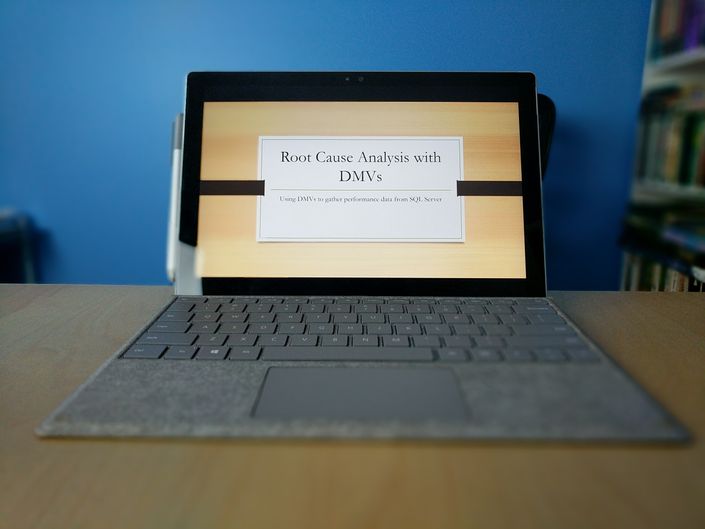
SQL Server Performance: Root Cause Analysis with DMVs
Using Dynamic Management Views and Functions to gather and analyze performance data from SQL Server.
Watch Promo Enroll in Course
Troubleshooting performance issues in SQL Server is an essential skill to any database administrator or engineer. Gathering the data necessary to understand a problem can be a taxing part of the process. In my experience with SQL Server, DMVs have become my first source for quick data on what is happening in a SQL Server instance.
In this course, I will walk you through a number views and functions that can provided the detailed information you need to understand performance issues in SQL Server. I will provide a example scripts for each view and function showing how I've used these in the past, and there will be discussion of how to interpret the data we access. I'll also share some stories from my own experience where one of these scripts was especially effective. Overall, this course has over two hours of lecture, discussion, and examples.
All of this is intended to help you quickly identify the root cause of performance issues in SQL Server. Becoming adept at troubleshooting SQL Server performance issues has had a huge impact on my career, and I hope this information will be as beneficial to you as it was to me.
Your Instructor

Jared Poché is a a database engineer and administrator with 15 years of industry experience with SQL Server, and a 10 year veteran of Microsoft CSS. Jared has spoken at multiple SQL Saturday events, has experience as both a tech lead and a instructor for certification classes, and is currently optimizing database performance for a multinational e-commerce company.
Frequently Asked Questions
I very much hope that you have enjoyed my first online course. This has been a great experience for me, since I am an avid learner myself and love to teach eager students.
In this course, we have reviewed a number of views and functions that provide a wealth of information about SQL Server's performance. I hope you are able to put this information and the examples I've provided to good use and make advances in your career and understanding of SQL Server.
Please stay tuned as I intend to create additional courses going forward. Feedback is always appreciated, and let me know if you would like to take a class on another topic related to SQL Server.
